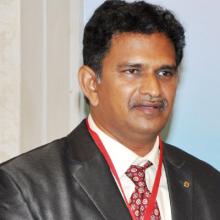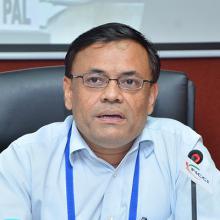The road to net zero cement begins with smarter finance
December 9, 2025 |
December 9, 2025
ETEdge Insights
Recent industry analyses, including one developed collaboratively by GCCA India and TERI, highlights four key levers for further reducing emissions in the cement sector. These include increasing the use of SCMs to reduce clinker content, expanding the use of waste-derived and biomass fuels, enhancing energy efficiency through digital and smart control systems, and investing in CCUS technologies. Put together, these initiatives will provide a comprehensive effort towards a more sustainable and low-carbon cement industry.
Andhra Pradesh’s clean energy initiatives lauded
November 19, 2025 |
November 19, 2025
The Indian Express
Andhra Pradesh's dedication to renewable energy and saturation-level Energy Efficiency initiatives exemplifies a long-term vision to safeguard future generations, stated Mr Girish Sethi, Senior Fellow & Senior Director, Industrial Energy Efficiency Division, TERI, New Delhi. He observed that the MoUs signed within a single day could potentially garner investments totaling Rs 5,000 crore and could serve as a benchmark for other States.
Ensure all PMAY beneficiaries get BEE star-rated, energy-efficient appliances: Naidu
November 19, 2025 |
November 19, 2025
The Times of India
Mr Girish Sethi, Senior Fellow & Senior Director, Industrial Energy Efficiency Division, TERI hailed the Andhra Pradesh government for signing a record number of MoUs in a single day for energy efficiency measures. These agreements, worth around Rs 5,000 crore in investments with central government agencies such as EESL, aim to aggressively promote energy efficiency and are expected to inspire other states to follow suit.
India's cement demand is set to soar. But what about the sector's carbon emissions?
September 25, 2025
| Dr Vibha Dhawan, TERI and Mr Joydeep Mukherjee, GCCA India.
| Mint
From housing to highways, India's growth story rests on cement. But this is a 'hard to abate' sector as far as carbon emissions go. Thankfully, pathways exist to decarbonize it, write Dr Vibha Dhawan, Director General, TERI and Mr Joydeep Mukherjee, Co-Chair, GCCA India.
Can India Take the Lead in Green Steel?
August 28, 2025
| Mr Will Hall
| Outlook Business
India's booming steel sector, low-cost renewables and green hydrogen push create a unique opportunity to pioneer competitive green steel technologies at scale, writes Mr Will Hall, Visiting Fellow, Industrial Energy Efficiency Division, TERI.
Hard to Abate, Harder to Ignore: Decarbonizing India’s Heavy Industry -Girish Sethi
August 21, 2025 |
August 25, 2025
The India Energy Hour
In this episode, Mr Girish Sethi, Senior Director, Industrial Energy Efficiency Division, The Energy and Resources Institute or TERI to unpack one of the toughest challenges in India’s clean energy journey decarbonizing the steel and cement sectors.












